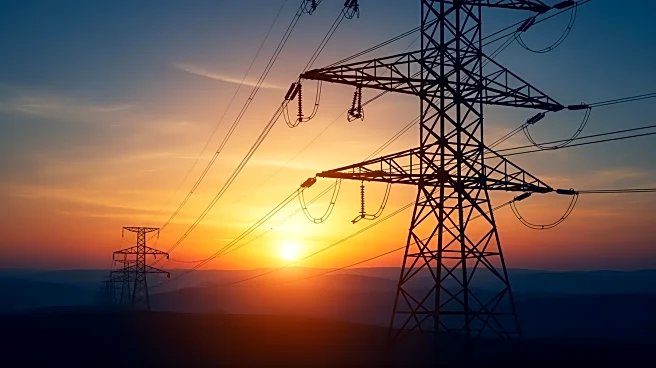What's Happening?
At the COP30 climate summit in Belém, Brazil, leaders are concentrating on the energy transition, with a focus on decarbonizing industry and transport, maturing carbon markets, and reducing non-CO2 emissions. A significant challenge highlighted is the need
for modern grid infrastructure to support renewable energy expansion. The International Energy Agency (IEA) has noted that global investment in grids has stagnated at around $300 billion annually since the Paris Agreement in 2015. To align with the Paris Agreement's 1.5°C pathway, a doubling of investment is required by 2030. The summit includes discussions on overcoming these grid constraints, with insights from experts like Alfredo Parres from Hitachi Energy.
Why It's Important?
The focus on energy transition at COP30 is crucial for meeting global climate goals. Modernizing grid infrastructure is essential to support the increased capacity of renewable energy sources. Without adequate investment, the transition to a sustainable energy system may be hindered, affecting efforts to limit global warming. This has implications for industries reliant on fossil fuels, as well as for countries aiming to meet their climate commitments. The discussions at COP30 could influence future policy and investment decisions, impacting the pace and success of global decarbonization efforts.
What's Next?
The COP30 summit is expected to continue discussions on energy transition and grid investment until its scheduled closing on November 21. Stakeholders, including governments and energy companies, may announce new commitments or strategies to address the grid infrastructure challenges. The outcomes of these discussions could lead to increased investment in grid modernization, influencing the trajectory of global energy policies and climate action.
Beyond the Headlines
The emphasis on grid infrastructure highlights the interconnected nature of climate action, where technological, economic, and policy dimensions must align to achieve meaningful progress. The need for investment underscores the role of financial institutions and governments in facilitating the energy transition. Long-term shifts in energy policy could redefine global economic landscapes, with potential ethical considerations regarding equitable access to clean energy.
















